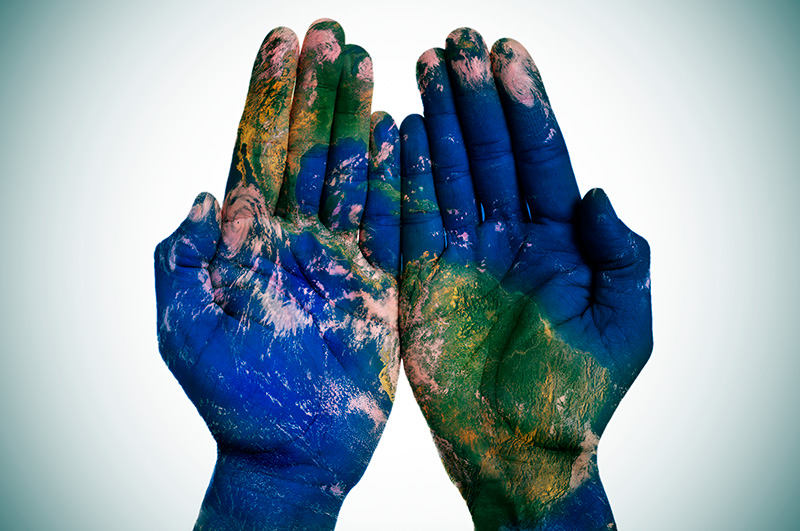
The diary of a Pakistani Millennial in Norway continues with a look at gender and multiculturalism in Norway.
Being a woman is tough in this male-dominated world. Or so I’ve heard say many times. Add to the list attributes such as Muslim and Pakistani, and it’s a wonder that they get by in life with any ease.
Read more: From Islamabad to Klepp
And yet, here I am, living, breathing, and quite frankly, enjoying life—a fact that many here in Norway are surprised at when they see me.
An arranged marriage
Mine was an arranged marriage, which means that I only met my husband after we were already married. In Pakistan that is usually the case. So, it’s not a wonder that a common phrase has been chalked out to explain the phenomena: ‘a wedding is like a lottery; you either win big or you lose’. Mine has proven to be a jackpot!
So, when I first arrived here in Klepp to join my husband, I was quite taken aback at the surprise people felt after I interacted with them. This included the doctor, midwife, nurse and a few others. Apparently, they could not fathom that I, a Pakistani Muslim woman, newly-married and that too arranged could seem so happy!
And ‘wow! Your English is so good!’ Well, yes, my English needed to be good if I wanted to teach at the university level back home, I would think to myself while offering them a polite smile.
Read more: How to get married in Norway
‘It’s so good to see that you are happy!’ was another comment after witnessing me laugh at one of my husband’s jokes at a dinner party we hosted. ‘You don’t look like a Pakistanisk at all, you look Indiansk!’ I was told, much to my consternation at another gathering.
Surprise below the surface
Now, don’t get me wrong, these comments and many others like them, were all said in good faith. Yet the surprise hidden just beneath the surface pinched my heart every time. It still niggles at the back of my mind sometimes, and I feel like a lab rat under constant scrutiny of vigilant eyes of some unseen entity, as if being a happy, successful, empowered Muslim woman is something out of the ordinary.
It shouldn’t be like this. After all, how often do we question the happiness of a local couple who just upped and got hitched on a whim? If spontaneous actions such as these are the norm, then why not the local traditions and cultures of other nations understood to be the norm in their context? Such is human nature, I suppose.
The fear of the unknown; suspicion of the outsider… Or perhaps it is merely the fact that we humans have a tendency to group together similar items in our minds.
Cue: dark skin female with a covered head = Muslim, which also ‘naturally’ leads most of us to believe that a Muslim woman must be a victim of heavy-handedness, cruelty and neglect. Note the word ‘most’. And so the next emotion that often accompanies this mental calculation is that of sympathy.
Immigration to Norway
Norway is a rich country, both in terms of its wealth and beauty of its people and the landscape. Over the years, the changing global political situation and the burgeoning human crisis in many parts of the world has led Norway to be the host to a number refugees fleeing from their native lands.
Read more: Norway Immigration Guide
Ever since my arrival in this sleepy little town a year ago, I’ve seen many immigrants moving about: Somalians, Eritreans, Syrian, Turkish and a few Afghan too. Many of them are survivors, having faced war and conflict and barely made it here alive, while others have come here as an escape from the economic hardship and poverty in the hopes of earning a decent living and simply surviving.

The Norwegians seem proud of their ability to provide these refugees, most of whom have barely made it here, with a sense of security, freedom and lifestyle that would have otherwise not been possible for them. Their problems and realities back home are looked upon with great pity by the local population, who offer them help and moral support.
But there's a catch
Yet there's a catch. Pity and sympathy when used in such context can often have paternalistic or condescending overtones.
For instance, while talking with some of the locals about the refugees fleeing warzones, I got the sense that many were of the view that since they’ve been kind enough to host these war-torn people, the new-entrants should rid themselves of all the baggage from their previous homeland. They should embrace the Norwegian way—whether it is the culture, language, work ethic or the everyday quirks.
But what is difficult to understand is that integration does not happen overnight. Nor is it so easily achievable. Of course, human nature demands constant change and adaptation in order to survive.
That being said, in my opinion it kind of defeats the purpose of integration and multiculturalism if there exists such low tolerance to acknowledge different cultures and world views. Instead, a bit of empathy goes a long way. I strongly believe that formulating immigrant policies while keeping an empathetic mindset can achieve far more efficient results than one that only takes a monolithic, rigid approach.
The attitude towards immigrants and refugees
In my quest to learn about the local politics and the general attitudes of the public about the issue of immigrants and refugees here in Norway, I spent a good few days poring over the internet, reading up on research articles and newspapers. What I found as a result was quite thought-provoking.
Firstly, the political spectrum of Norway is one complex set of confusing colours and misleading names. I mean, the Progress Party is not really all that progressive. Then there's the whole red-green shebang that I still can’t get my head around! Secondly, Norwegians are quite contradictory in their opinions and attitudes, especially when it comes to allowing new entrants to ‘share the pie’ so to speak.
Like many other aspects, Norwegians seem to have a particular view of certain things, and immigration is one of them.
For instance, according to a report in 2018 on the attitudes towards immigrants and immigration published by Statistics Norway, 29% of Norwegians strongly agreed that most immigrants make an important contribution to Norwegian working life, 34% strongly believed that most immigrants enrich the cultural life in Norway, while only 7% Norwegians strongly agreed that most immigrants are a cause of insecurity in society.
Read more: Scepticism of Immigrants falling in Norway
This would lead one to believe that issues such as integration of the immigration population and their acceptance would be looked upon favourably; yet interestingly enough, around 29% of the Norwegian general public agreed that compared to today, refugees' and asylum seekers' access to residence permits in Norway should be made more difficult.
Outspoken politicians
Another baffling thing I learnt was the rigid views of the former Minister of Immigration and Integration, Sylvi Listhaug regarding immigration and Muslims in general. In all honest opinion, I found them outrightly xenophobic and Islamophobic at times.
For instance, her comments related to immigrants such as, “We are fully aware that there are wolves in sheep’s clothing”; and “Fundamentalists who hate our Norwegian system are coming to exploit the boundless Norwegian naivety,” among many others reveal how selectively prejudice she has been.
Statements such as these clearly reveal the lack of understanding there is at the plight of those running for their lives and in desperate need of shelter and protection. Herein lays the basic difference between pity and empathy, the latter of which is so obviously lacking in this case.
Nonetheless, the fact that she was forced to resign as Minister of Immigration due to her fiery and offensive rhetoric proves the true values of the Norwegian political system. It makes me optimistic that despite such acute differences on issues such as multiculturalism, identity, belongingness, and integration, there is yet sufficient space to debate and to find a middle ground. Not only the Norwegian society but for the new entrants into the system.


You make some great points about the public’s perception of arranged marriages. Western culture teaches us assumptions about what people need. Often these assumptions are false. I had to laugh at your GREAT POINT that your marriage should be equally welcomed, as a marriage from a whim. The sudden decision is respected, at least OUTWARDLY. Some say, “Oh that’s so romantic.”
Personally, I would support arranged or on-a-whim marriages. The first seems to be rooted in parental respect. That should have a high value! But the whim marriage, has no forethought – parental or otherwise. On the inside I’m thinking, “OK, you knew each other for 2 or 6 weeks and just decided to make it permanent.” It’s not romantic to me, it’s romantically idiotic.
I assume that many people are surprised about your contentment, BECAUSE there are scenarios presented in many movies and TV shows. This is like a propaganda effort. You can gleefully announce that fiction writers did not interview you for the plot planning!!
If I heard things like this about my marriage, then it would be like a nasty wood saw dragged across my arm. It grates against your soul experience. However, I FULLY ENJOY being an exception to people’s expectations. We can be have gusto to explode expectations and stereotypes. This can relate some to the cultural assimilation issue also. False expectations can be fun to expose.
Thanks for this insightful piece of writing. Sincerely, a Norwegian who is exasparated by how racist this country can be sometimes – but your experiences and clarity of thought makes me more optimistic.
I couldn’t agree more about the former minister of immigration. Her views are not only extreme, when she later got the post of Minister of Justice, the first thing she did was to try to force through a law that would bypass due process, so that people could lose their citizenship without going through the judicial system (courts etc). So, we had a minister of justice who don’t believe in the three pillars of democracy, what we in Norwegian call “den lovgivende, den utøvende, og den dømmende makt”. If those three are not kept separate there’s no democracy. There’s a name for that particular political view, and it starts with “F” and ends with “ism”.
What happened though was that the politicians, including the prime minister, *only* focused on the fact that some people in the Labour party (Arbeiderpartiet) felt offended. And *that* was the only reason she lost the post. Who cares if a politician feels offended? That happens all the time. No, the prime minister should have kicked her out of the position the moment she, as a “Minister of Justice”, showed that she had no idea about how the legal system and democracy must work. And unfortunately she’s still in the system, uttering her xenophobic views. As a Norwegian (and a conservative one) I’m appalled.
I’ll end with saying that I live in a small town (on global standards anyway) with people from more than a hundred nations and as many languages. The immigrants (temporary and otherwise) are living here and there as everybody else, not clustered as in some places in Norway. I feel that this town is a much better place to live in than when I was a boy here (now I’m nearing retirement age).. And that’s because there are people from everywhere here, integrated and still bringing new culture to the table.